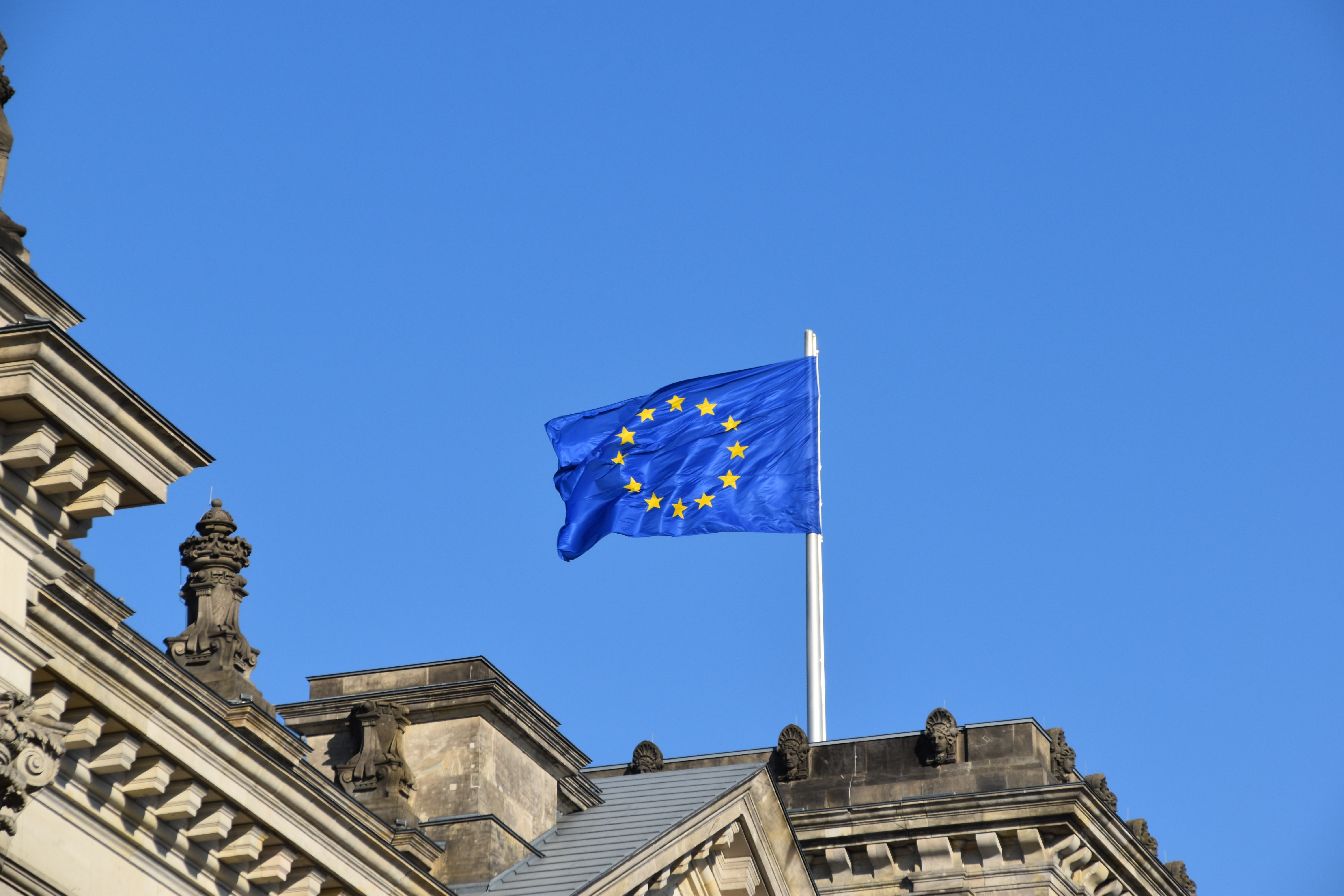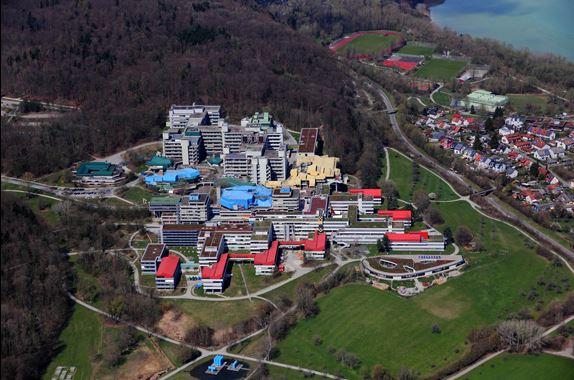Studies in European Culture – Master of Arts

Please note that this Master's programme will be continued under the name Global European Studies (M.A.) from the winter semester 2020/21 onwards as part of a revised version and sharpening of its profile.
Postgraduate study programme which requires a first university degree.
Interdisciplinary cultural studies in Konstanz and the world: the master’s programme (MA) Studies in European Culture offers students interdisciplinary and research-oriented studies of European cultural dimensions. The focus is placed on the complex interactions between European and global developments. A central component of the four semester study programme is therefore the study abroad semester at a non-European partner university in Argentina, Chile, China, India, Canada, South Africa and the United States.
The aim of the study programme is to provide students broad training in cultural studies. The cultural study of the construct of Europe takes centre stage: Europe’s historical development, its ideas, its religious characteristics, its ambiguities and contradictions, its political and ideational expansions as well as its institutions and cultural conflicts.
While the study programme is formally embedded in the Department of Literature, Art and Media Studies, it explicitly augments its orientation towards cultural studies with knowledge and approaches from related disciplines, especially history and sociology. Students are also able to incorporate topics and perspectives from politics and law. The Cluster of Excellence “Cultural Foundations of Social Integration” initiated the study programme in the 2008/2009 winter semester. Since 2019, the study programme has been cooperating with the Research Center “European Cultures in a Multipolar World”.
Overview
| Degree | Master of Arts |
|---|---|
| Programme start | Winter semester |
| Period of study | 4 semesters |
| Application period | 12.5. - 15.7. |
| Admission restrictions | no |
| ECTS | 120 |
| ⌀ Number of students | 15 |
Why study Studies in European Culture in the University of Konstanz?
The master’s programme Studies in European Culture allows students to engage in the interdisciplinary cultural study of the cultural dimensions of Europe and the complex interactions between European and global developments. This study programme is one of a kind in the German-speaking academic community in terms of explicitly connecting European and non-European perspectives and investigating them from a cultural studies (theoretical and historical) perspective. In addition to covering theory, cultural studies in Konstanz places a special focus on the interdisciplinary and international programme components.
Lively interaction in the seminars, which address specific contents in small groups, is prioritized over lecture formats. In addition to providing master’s students the opportunity to exchange viewpoints on specific topics and questions, the study programme’s colloquium (European Parliament) also allows them to both discuss and evaluate individual courses of study and project ideas together. The study programme aims to provide optimal academic support to its students.
High-quality and research-oriented teaching as well as colloquia and an interdisciplinary mentoring programme set our master’s programme apart.
The department provides prospective students the opportunity to learn more about the study programme via an information event and a webinar before the semester starts. Individual questions can be discussed with programme staff members during both event formats.
Content
Prospects and opportunities
Career prospects
The desired qualifications and career prospects of graduates of this study programme are diverse and depend on the individual study priorities. A central aim is to enhance students’ capacity to contextualize information, which includes the ability to acquire new knowledge and to apply it in different contexts.
Possible career fields include, for example
- Research and teaching
- International organisations and NGOs
- International cultural exchange
- Media, foundations, publishers (journalism, public relations, professional journals etc.)
By including internships, language courses, transferable skills courses as well as your own transfer projects in your study plan will allow you to supplement your individual study priorities with specific qualifications and practical experience. The study programme provides access to an excellent research environment, which allows students to both gain insight into diverse research in the field of cultural studies at the University of Konstanz and receive support for their own research projects.
Check out our interview series #dreamjob – starting a career for additional information from our alumni about starting your career.
Programme structure
Programme start
Winter semester
Academic structure
The following table presents a sample study programme structure (in German).
Please check the Exam regulations (partly in German) for more information about the programme structure.
Internship and study abroad
Internships
While an internship is not mandatory, it is recommended and can be recognized as supplementary coursework. The department and the university’s Career Service can help you find a suitable internship.
Study abroad
The international orientation of the study programme is advanced by the required study abroad semester during your third semester at one of eight partner universities outside of Europe. Your study experience in Argentina, Chile, China, India, Canada, South Africa or the United States will provide you a change of perspective: How is Europe viewed from abroad?
Requirements
What interests and skills should I have?
- Interest in extensive reading and the discussion of both literary and historic primary source texts as well as secondary scientific sources
- Specialized prior knowledge (methodology, theory) in the disciplines that are associated with the study programme
- Openness to interdisciplinary, methodological and conceptual approaches
- Knowledge of history and interest in cultural studies related to the construct of Europe and its global interdependencies
- Interest in cultural exchange and acquiring intercultural competencies
- Very good verbal and written skills in both English and German
Language skills
Required foreign language skills
Additional proof of foreign language proficiency is not required when applying to the master’s programme Studies in European Culture.
German language proficiency
International applicants will need to submit documentation of their German language skills at the level DSH-2 or TestDaF 4 or higher. Alternatively, you may submit other recognized language tests or recognized school certificates. The University of Konstanz does not offer preparatory German language courses or approved German language exams. For this reason, you must submit officially recognized documentation confirming your German language proficiency along with your application.
Language(s) of instruction
The language of instruction for the master’s programme Studies in European Culture is generally German – some courses are also taught in English or another European language.
Admission requirements
- Documentation of a degree with a grade of 2.5 or higher earned after at least three years of study at a university or either a state or state-recognized Berufsakademie (Bachelor of Arts or Bachelor of Science degree) in a study programme within the humanities or social sciences. Fields of study may include, for example, cultural studies, literature, art and media studies, philosophy, history, sociology, anthropology, ethnology, political science, European and regional studies or an associated field of study. If the examination certificate is not yet available, you must submit a provisional final grade from the official transcript of records.
- A letter of motivation no longer than two pages exhibiting the applicant's strong interest in cultural-theoretical issues affecting Europe.
You will find more information in the admission regulations.
Fees
All students enrolled at the University of Konstanz are charged a semester fee each semester, similar to all other German universities. Here you can find the current semester fee and its individual components.
Tuition fees for first degree studies for certain international students
Since winter semester 2017/18, the state of Baden-Württemberg has required some international students to pay tuition fees for their first degree studies. The following students are not required to pay tuition fees: citizens of a country within the European Union (EU) or the European Economic Area (EEA), doctoral students and certain “Bildungsinländer” (e.g. non-EU citizens with a German “Abitur”). More detailed information can be found here.
Each year, the University of Konstanz grants exemptions to a limited number of particularly gifted international degree-seeking students in accordance with the university’s “Begabtenbefreiungssatzung” (statutes governing the exemption of gifted students). More detailed information can be found here.
Tuition fees for second degree studies for all students
All students are required to pay tuition fees for their second degree studies. More detailed information can be found here.
Application and application documents
The master’s programme Studies in European Culture does not have any admission restrictions.
An application is possible during the following period: 12.5. - 15.7. (winter semester). There may be other deadlines if you are applying for admission to a higher semester (for instance, if you are changing subjects or universities). For more information please consult the university website.
Application documents
Please enclose the following documents with your application:
- Application for admission
- Documentation of your academic degree including a detailed description of your coursework and performance assessments. If you have not received your examination certificate by the application deadline, please attach documentation of all completed performance assessments that will be used to calculate your final grade
- A letter of motivation no longer than two pages exhibiting the applicant's strong interest in cultural-theoretical issues affecting Europe
- A current certificate of enrolment or proof of exmatriculation – if you studied at a German university, please indicate your 'Fachsemester’ (semesters enrolled in a particular study programme) and your ‘Hochschulsemester’ (total number of semesters enrolled)
Important information: Please note the information provided under the tab “Admission requirements”.
International applicants:
- Documentation of German language skills, at the level DSH-2 or TestDaF 4 or higher, or another language test recognized as equivalent
- Applicants from China, India and Vietnam: APS certificate (original) issued by the German Embassy of your home country
- Applicants from Mongolia: APS certificate (original) issued by the German Embassy in Ulan Bator


